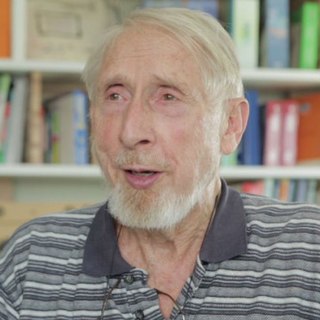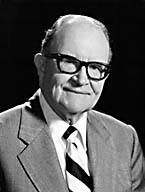A Quote by Carl Bereiter
We do not truly own our thoughts or experiences until we have negotiated them with ourselvesand for this writing is the prime medium.
Related Quotes
What Grandfather Burton did for me was to write a sacred family record, the small plates of Burton, or, if you will, an inspirational family record. Much of what we now regard as scripture was not anything more or less than men writing of their own spiritual experiences for the benefit of their posterity. These scriptures are family records. Therefore, as a people we ought to write of our own lives and our own experiences to form a sacred record for our descendants. We must provide for them the same uplifting, faith-promoting strength that the ancient scriptures now give us.
All our thoughts and concepts are called up by sense-experiences and have a meaning only in reference to these sense-experiences. On the other hand, however, they are products of the spontaneous activity of our minds; they are thus in no wise logical consequences of the contents of these sense-experiences. If, therefore, we wish to grasp the essence of a complex of abstract notions we must for the one part investigate the mutual relationships between the concepts and the assertions made about them; for the other, we must investigate how they are related to the experiences.
No individual can be in full control of his fate-our strengths come significantly from our history, our experiences largely from the vagaries of chance. But by seizing the opportunity to leverage and frame these experiences, we gain agency over them. And this heightened agency, in turn, places us in a stronger position to deal with future experiences, even as it may alter our own sense of strengths and possibilities.
They say an elephant never forgets. Well, you are not an elephant. Take notes, constantly. Save interesting thoughts, quotations, films, technologies…the medium doesn't matter, so long as it inspires you. When you're stumped, go to your notes like a wizard to his spellbook. Mash those thoughts together. Extend them in every direction until they meet.
We need to transcend our thoughts and desires to truly understand philosophy and the universe as a whole. However, in our everyday life, we deal with the micro universe and with our own affairs. Therefore we need to use our brain. To practice Tao is not to rid yourself of all thoughts. There are actually more occasions when you would use your true intention instead of non-desire.
Writing, for me, when I'm writing in the first-person, is like a form of acting. So as I'm writing, the character or self I'm writing about and my whole self - when I began the book - become entwined. It's soon hard to tell them apart. The voice I'm trying to explore directs my own perceptions and thoughts.
What kind of thoughts make you feel good? Thoughts of love, appreciation, gratitude, joyful childhood experiences? Thoughts in which you rejoice that you're alive and bless your body with love? Do you truly enjoy this present moment and get excited about tomorrow? Thinking these kinds of thoughts is an act of loving yourself, and loving yourself creates miracles in your life.
If we understood the power of our thoughts, we would guard them more closely. If we understood the awesome power of our words, we would prefer silence to almost anything negative. In our thoughts and words we create our own weaknesses and our own strengths. Our limitations and joys begin in our hearts. We can always replace negative with positive.
More and more, I have come to realize how thoughts and concepts are all that block us from always being . . . in the absolute. . . . When the view is there, thoughts are seen for what they truly are: fleeting and transparent, and only relative. . . . You do not cling to thoughts and emotions or reject them, but welcome them all within the vast embrace of Rigpa.

































